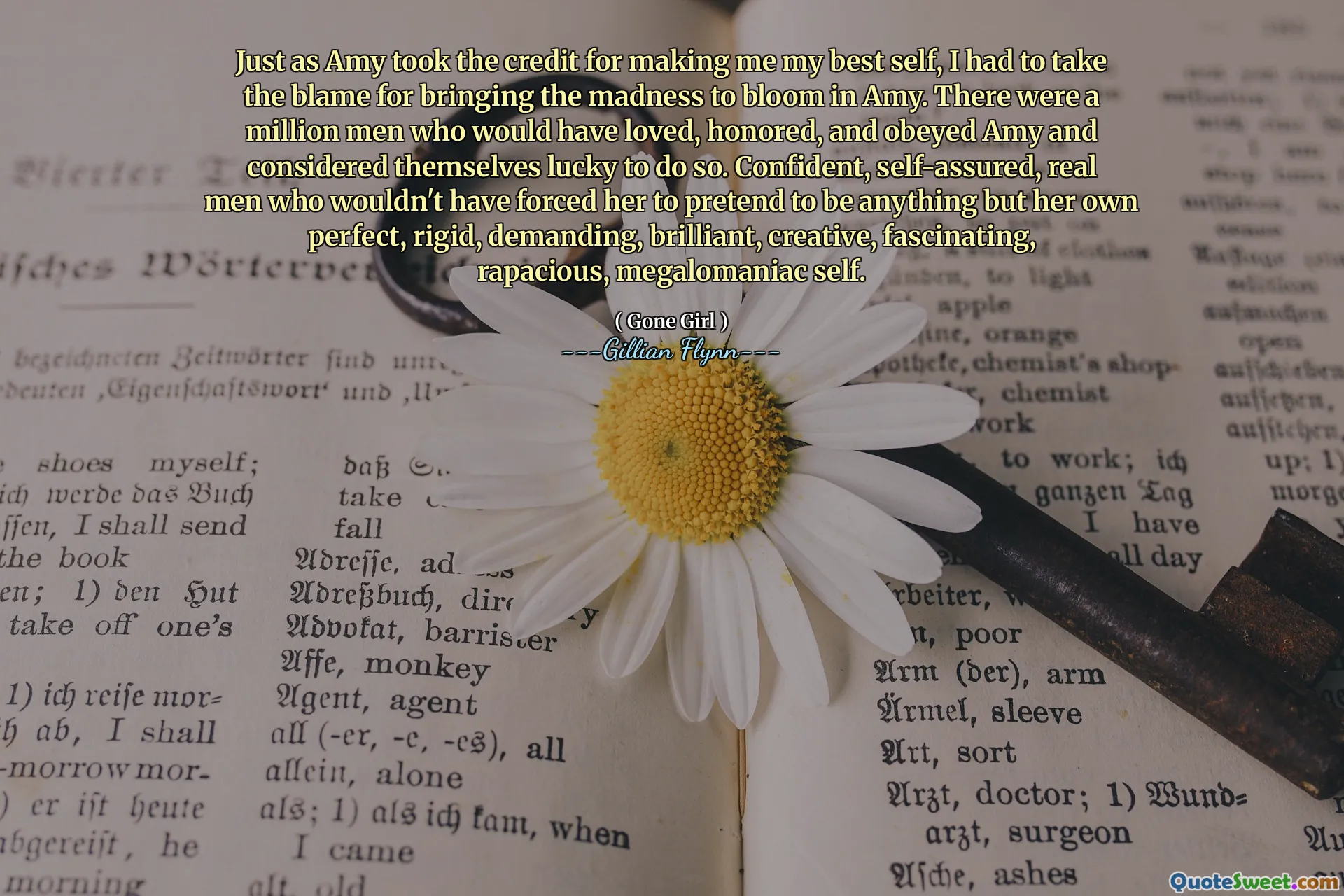
Just as Amy took the credit for making me my best self, I had to take the blame for bringing the madness to bloom in Amy. There were a million men who would have loved, honored, and obeyed Amy and considered themselves lucky to do so. Confident, self-assured, real men who wouldn't have forced her to pretend to be anything but her own perfect, rigid, demanding, brilliant, creative, fascinating, rapacious, megalomaniac self.
This quote delves into the complex and intertwined identities of Amy and the narrator, revealing a profound exploration of perception, accountability, and the masks we wear in relationships. The narrator acknowledges Amy's dominance in shaping his identity, crediting her for elevating him to his perceived best self. However, this appreciation is tinged with an acknowledgment of the chaos she embodies, suggesting a duality where admiration and chaos coexist. The depiction of Amy as a mesmerizing, almost larger-than-life figure—described as rigid, demanding, brilliant, and fascinating—paints her as a captivating force of nature. The phrase highlighting the multitude of men desirous of Amy paints her as an object of admiration and desire, yet it also raises questions about authenticity versus societal expectation of idealized femininity and masculinity. At the core, the quote explores the loss of individual agency and the complex power dynamics that govern personal identities within romantic or social confines. The narrator's recognition of Amy’s own destructive tendencies amid her brilliance hints at a paradoxical relationship where love and chaos are inseparably linked. It prompts reflections on how individuals shape and are shaped by their relationships, often second-guessing where admiration ends and vulnerability begins. Overall, it’s a profound meditation on the masks we wear, the blame we assign, and the compelling forces that draw us into embracing or falling victim to others’ definitions of greatness and madness.











